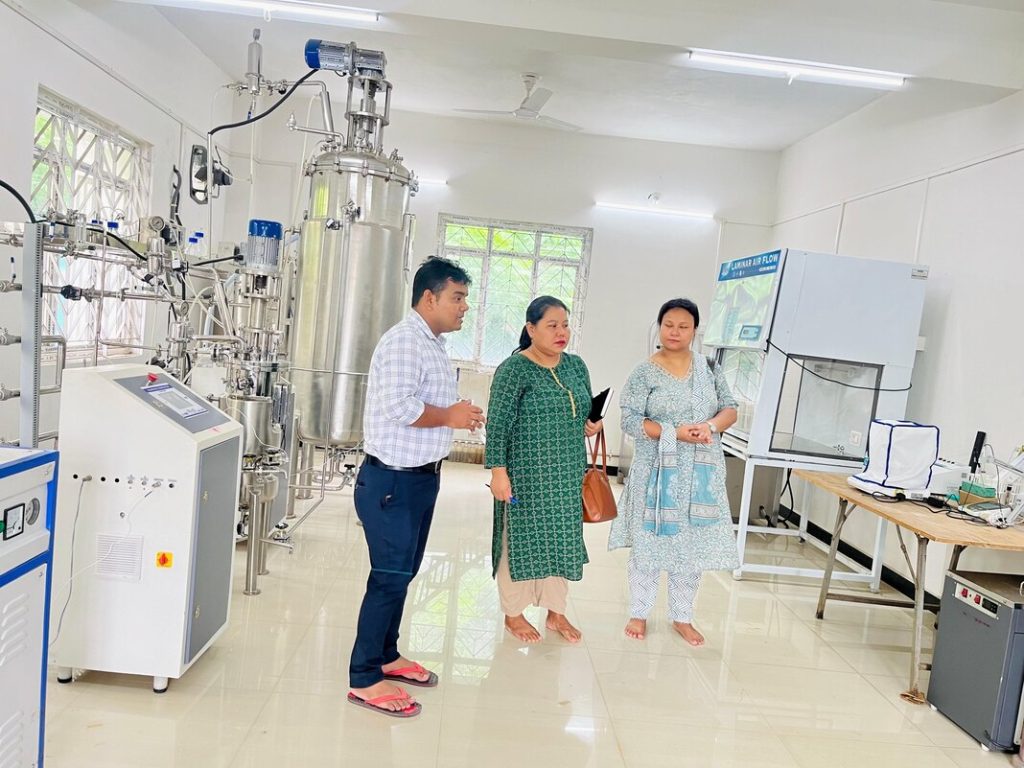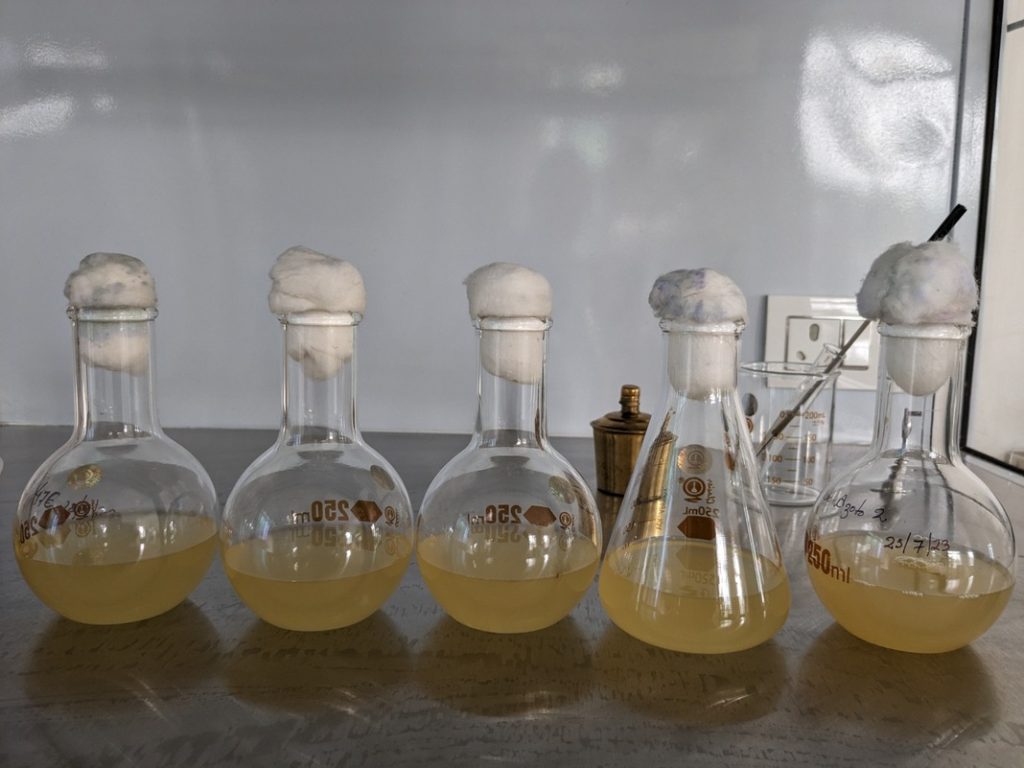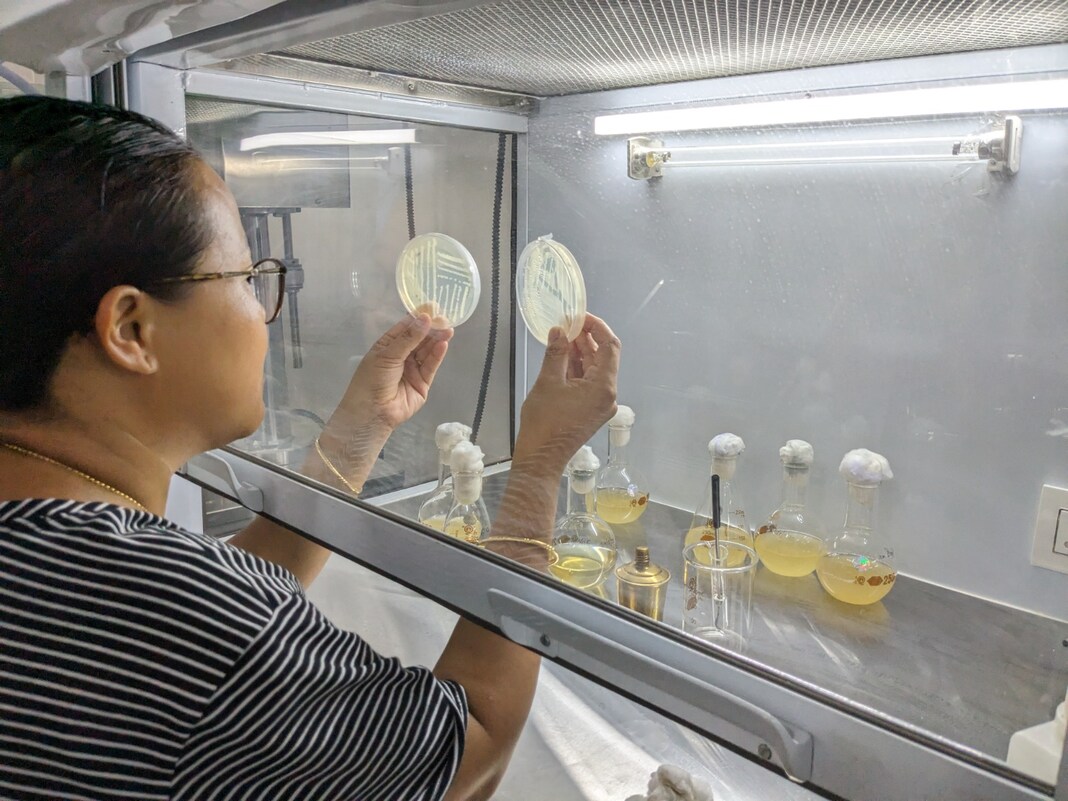ROOPAK GOSWAMI
Shillong, Feb 22: An innovation that quietly took root at the College of Community Science (CCS) Tura in 2023 is now transforming the way local farmers cultivate their land.
The Liquid Biofertilizer Production Unit at the College of Community Science (CCS), Central Agricultural University (CAU) (Imphal), Tura, is more than just a facility; it is a symbol of sustainable progress in agriculture.
Biofertilizers, enriched with living microorganisms, act as nature’s catalysts, enhancing soil fertility and boosting crop yields. Unlike chemical fertilizers, they fix atmospheric nitrogen, dissolve insoluble phosphates, and stimulate root growth, all while being environmentally friendly. The CAU Bioenhancer, the unit’s flagship product, has proven to be a game-changer for farmers in the region.

With a total capacity of 500 litres and a working capacity of 375 litres, the production unit is a state-of-the-art facility equipped with advanced fermenters, sterilization systems, and packaging units. It produces CAU Bioenhancer, a microbial powerhouse specifically suited for the acidic soils of Northeast India. Containing a consortium of beneficial bacteria—Bacillus altitudinis, Pseudomonas sapiophile, Azospirillum, and others—this biofertilizer works wonders across a variety of crops.
Since its launch, the CAU Bioenhancer has reached over 500 farmers across West Garo Hills, South Garo Hills, and South West Garo Hills. Farmers have embraced it for crops such as rice, maize, tomato, broccoli, cabbage, pumpkin, and more. Reports from the field are promising—yields have increased significantly, soil health has improved, and costs have gone down.

One of the farmers, Rikman Sangma from South Garo Hills, shared his experience:
“Before, I relied on chemical fertilizers, but ever since I started using CAU Bioenhancer, my rice yield has significantly improved. The soil feels richer and more fertile. It’s been a real blessing for small farmers like us.”
Farmers have also observed an unexpected yet crucial benefit—disease suppression. By applying CAU Bioenhancer to crops like okra, cauliflower, brinjal, and cabbage, they found that it helped inhibit soil-borne pathogens, reducing disease prevalence in their fields. Additionally, compared to conventional methods, the biofertilizer supplied vital nutrients such as potassium, phosphorus, and nitrogen, encouraging healthier crop growth.
One of the most significant impacts of the initiative is the reduced dependency on chemical fertilizers, particularly urea. Many farmers reported that the availability of CAU Bioenhancer from CCS, Tura, has allowed them to cut back on chemical inputs, leading to healthier soils and lower input costs. This shift not only benefits farmers economically but also contributes to a more sustainable agricultural ecosystem in Meghalaya.

Banchira D Sangma, a farmer from West Garo Hills says switching to CAU Bioenhancer has been one of the best decisions for my farm. My crops are thriving, and I no longer have to depend on chemical fertilizers as much. “It’s a cost-effective and sustainable solution” she adds.
Emphasizing the role of biofertilizers in soil improvement, Dr. Sabyasachi Majumdar, Assistant Professor at CCS, CAU (I), said biofertilizers contribute to the buildup of soil organic matter, enhancing soil fertility, structure, and overall health. “They introduce beneficial microorganisms that boost microbial diversity and create a balanced ecosystem,” he said.
Rethila D. Marak, another farmer from West Garo Hills, Meghalaya said vermicomposting has transformed organic farming for us. “The technology demonstrated by the scientists at CCS, Tura, has shown us how to turn organic waste into nutrient-rich gold, improving soil fertility and sustainability,” she said.
By integrating these methods, farmers have witnessed a 25-35% increase in yield while reducing input costs by 50%. Moreover, the biofertilizer stimulates native Rhizobium in legumes, ensuring better nitrogen fixation and long-term soil health.




